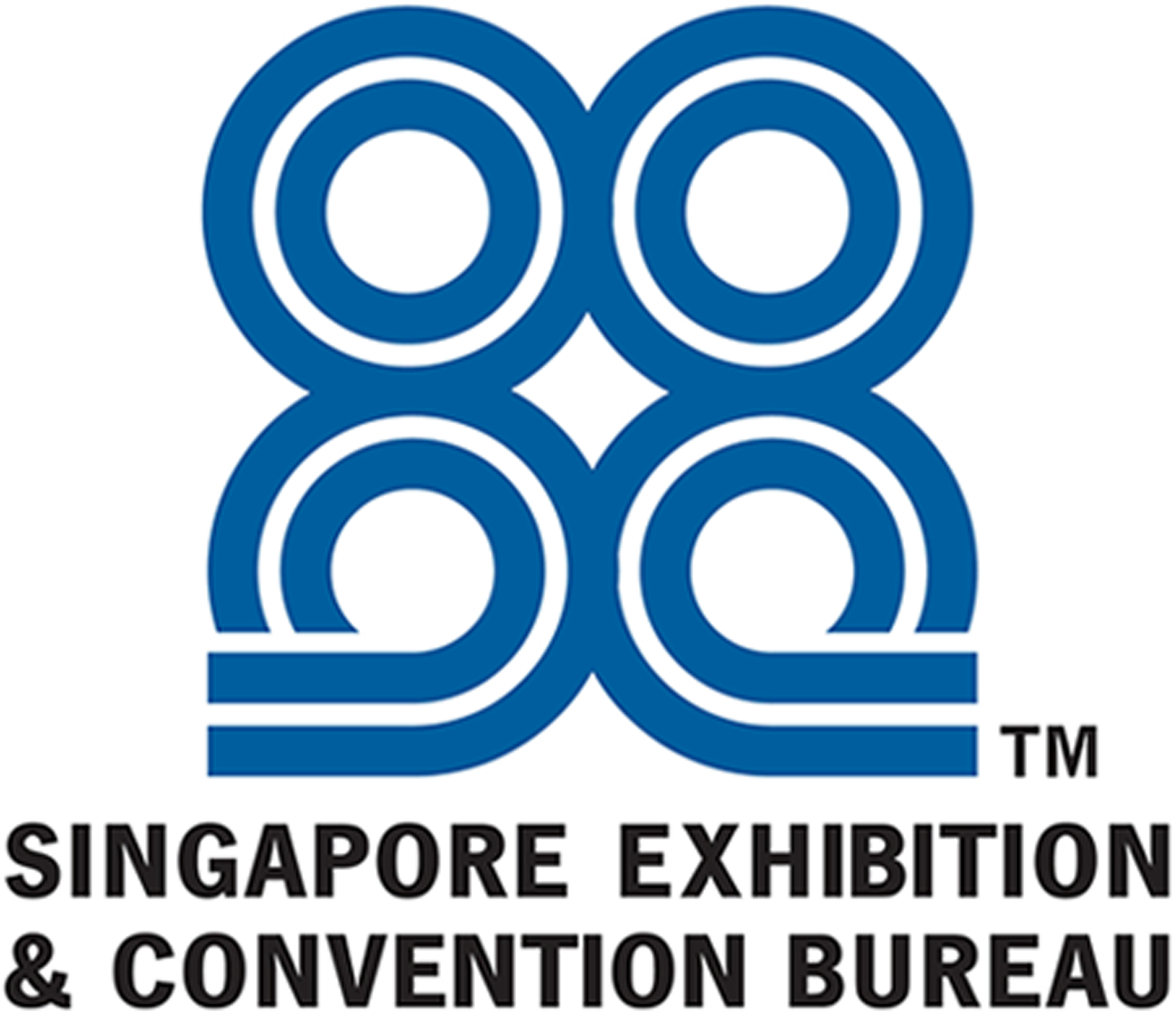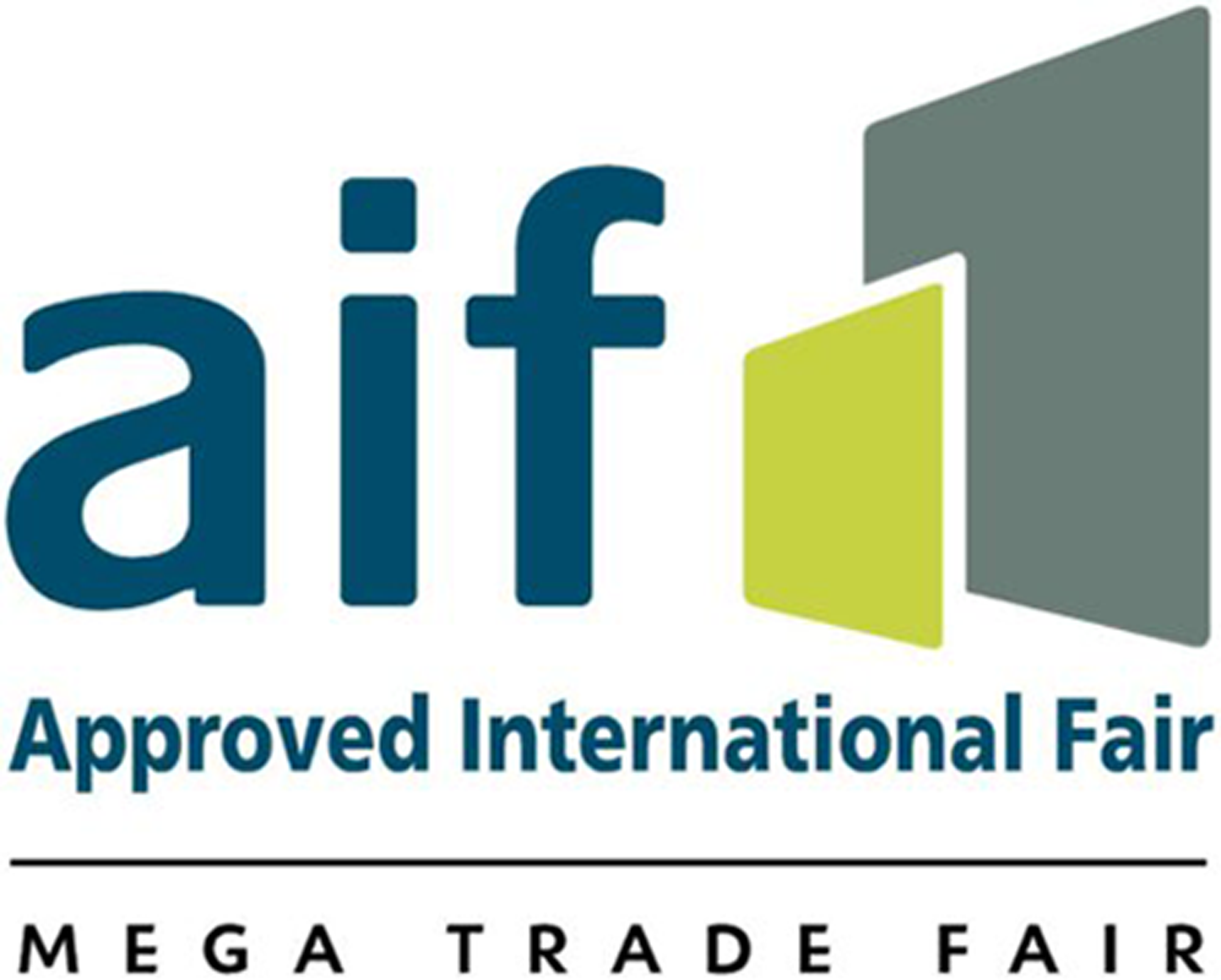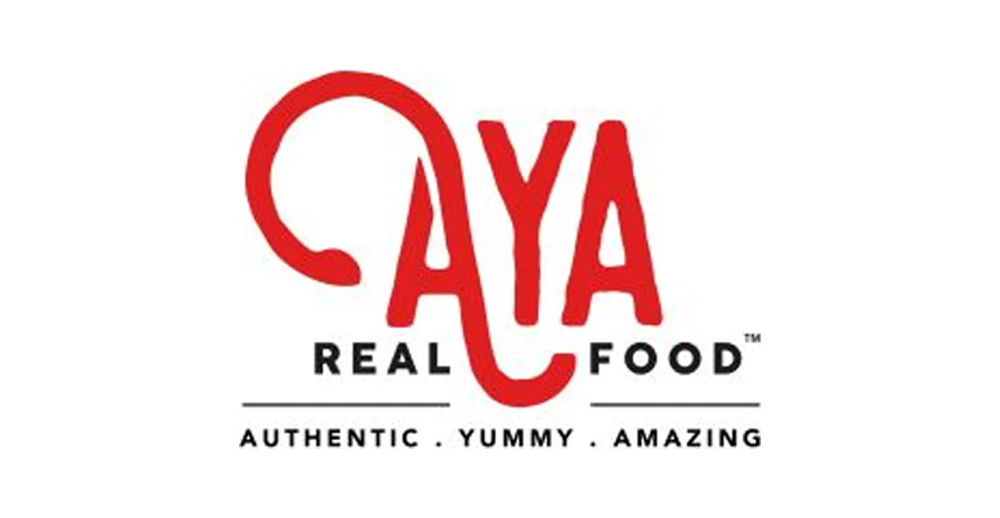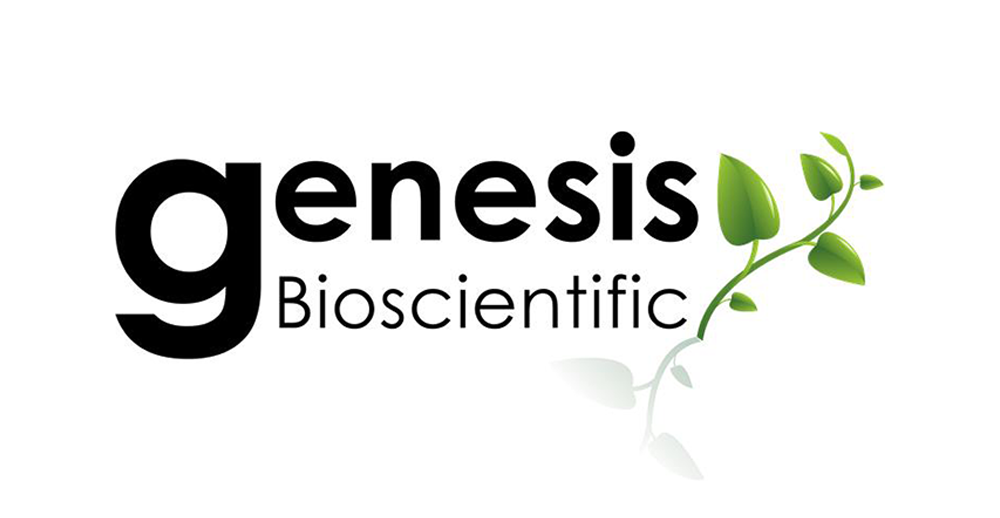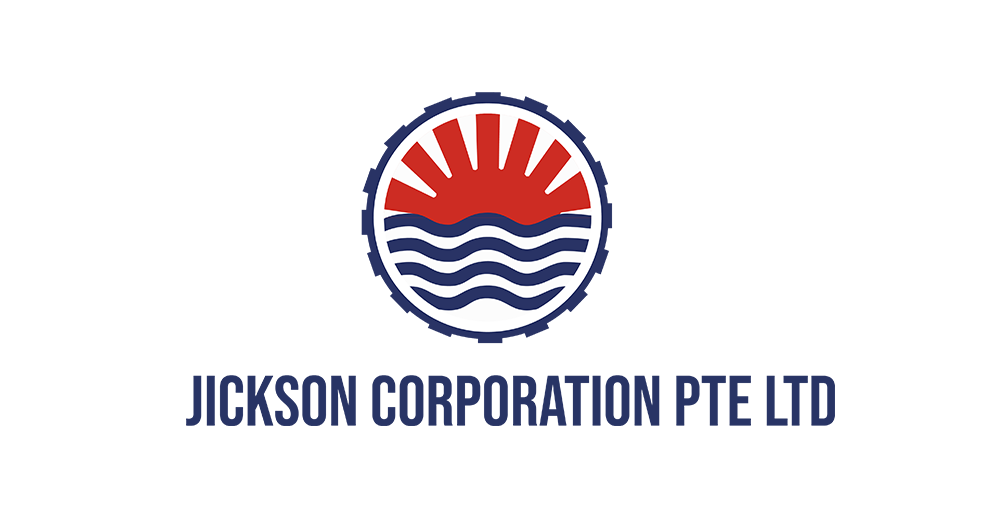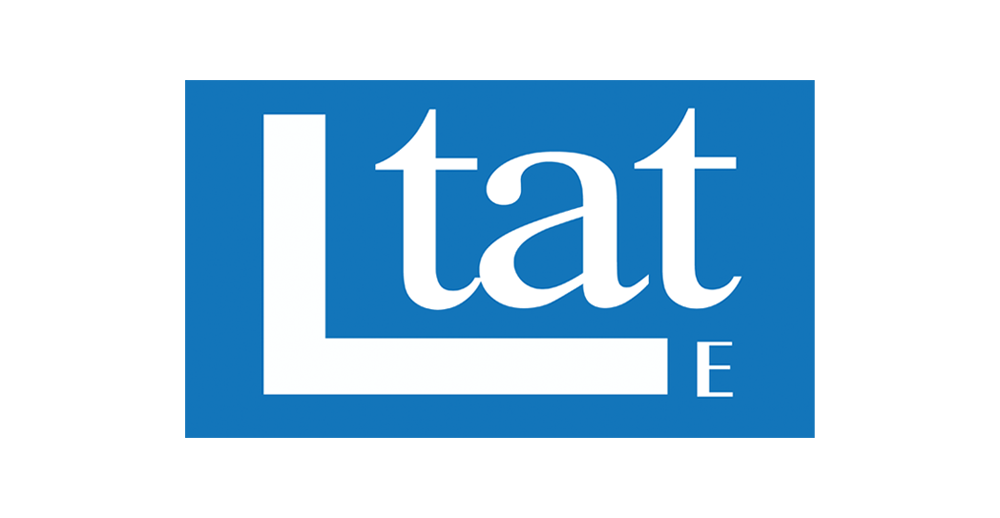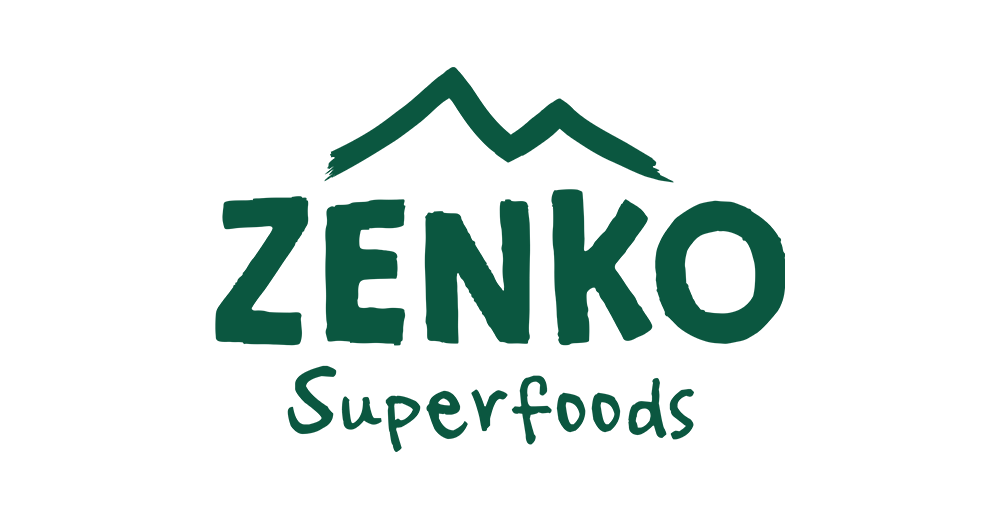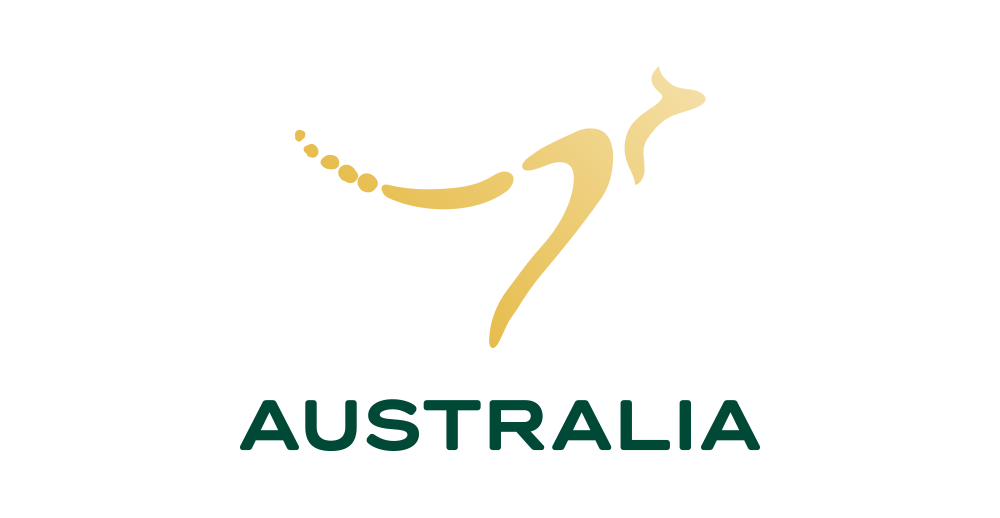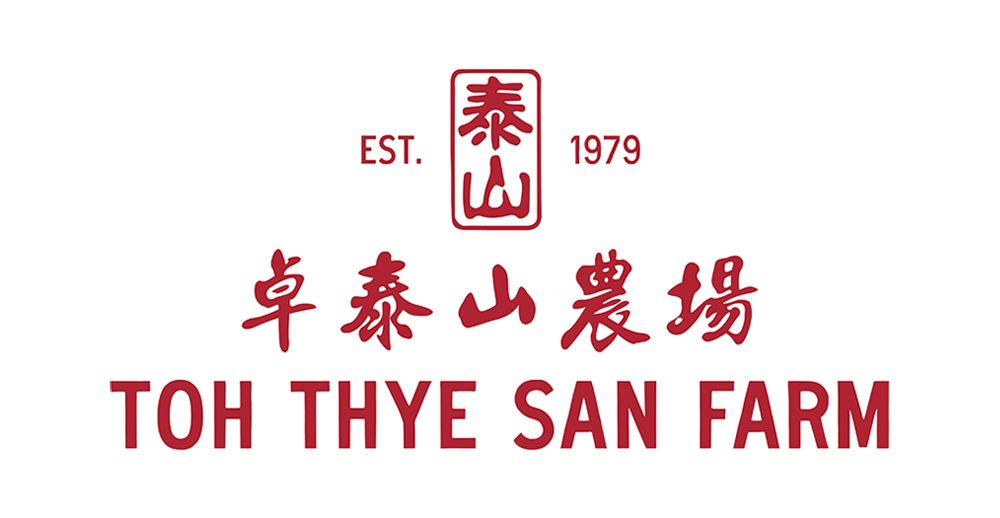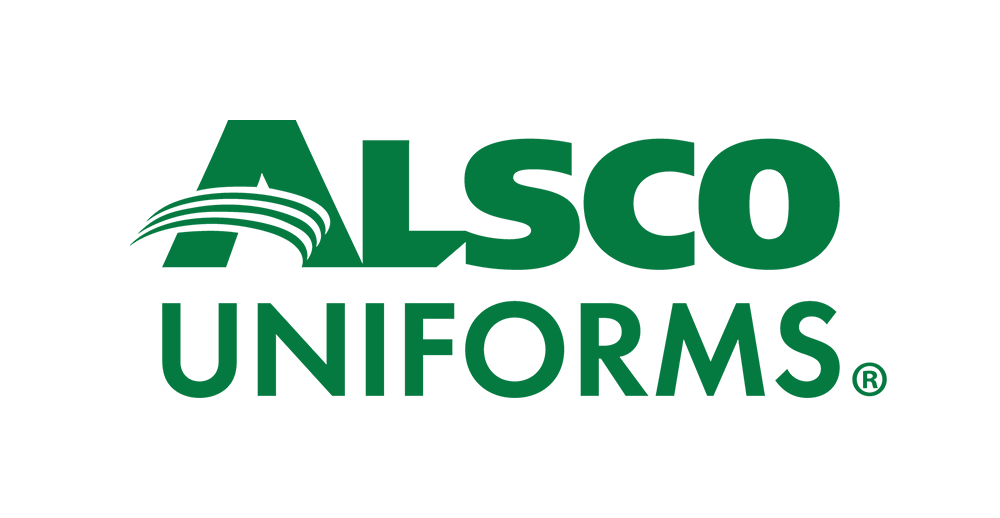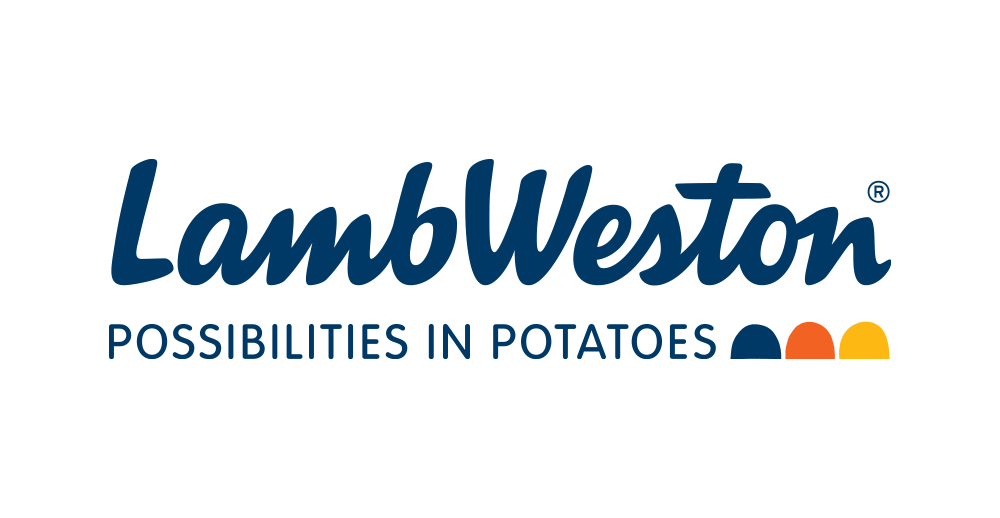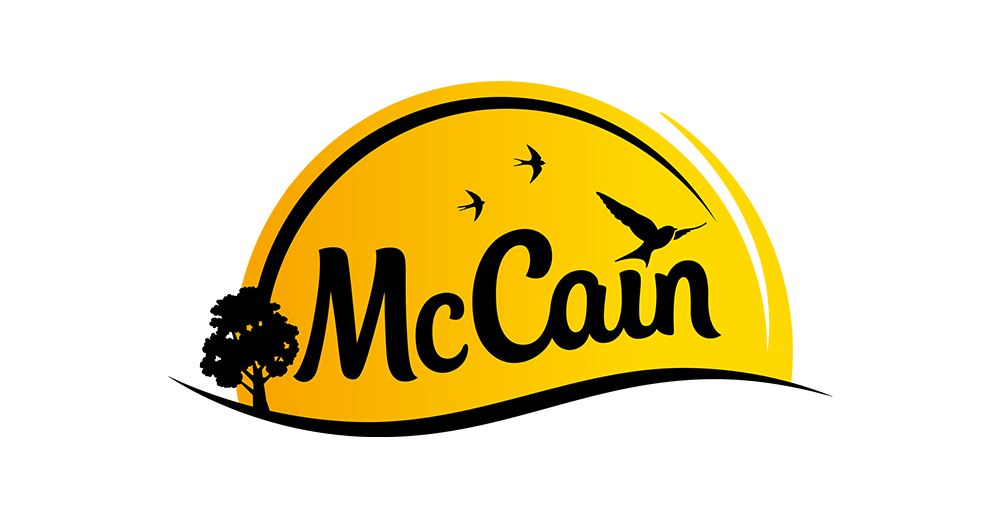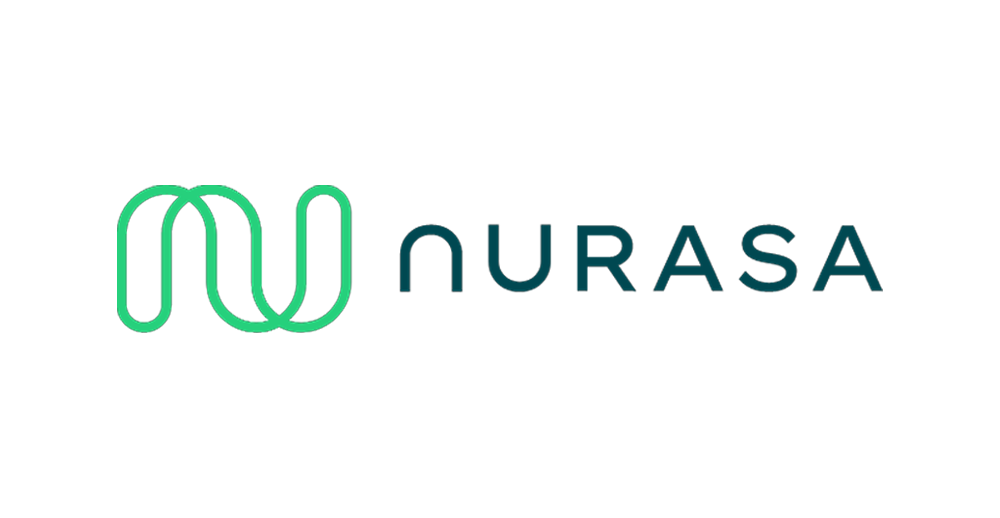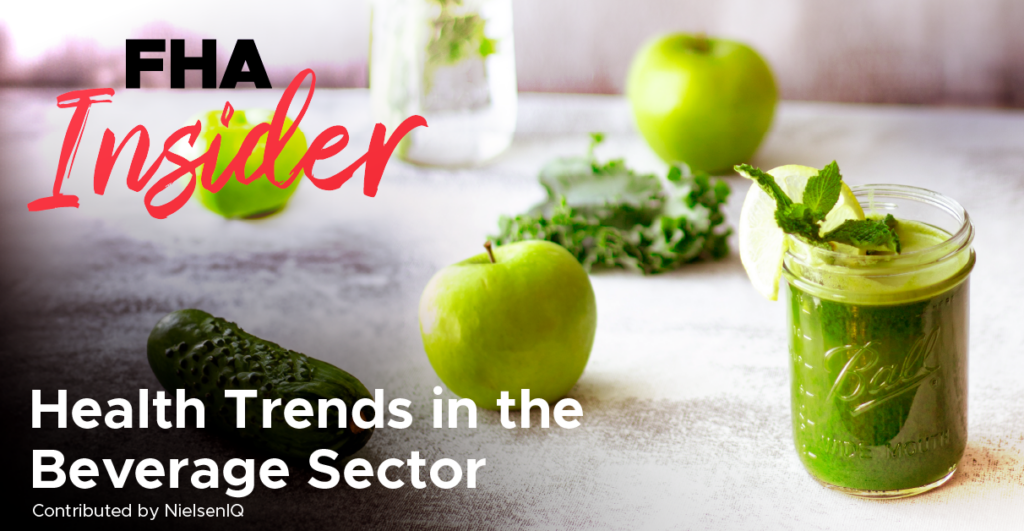
Consumers are paying more attention to what they consume. Over half (54%) of consumers identify themselves as proactive consumers who will make decisions based on health factors, according to a 2021 APAC Health and Wellness Study conducted by NielsenIQ.
Governments are also trying to nudge consumers to make healthier decisions. The Singapore government introduced the Nutri-Grade mark to help consumers identify healthier packaged drinks. Grade A corresponds to the lowest sugar and saturated fat content and Grade D the highest.
A third of consumers surveyed by NielsenIQ indicated that they are more willing to pay a premium for drinks with low sugar, premium flavours and added benefits. The survey results also showed an opportunity for organic beverages targeting seniors, with 42% of respondents aged 55 and above indicating that they are willing to pay a premium for such products.
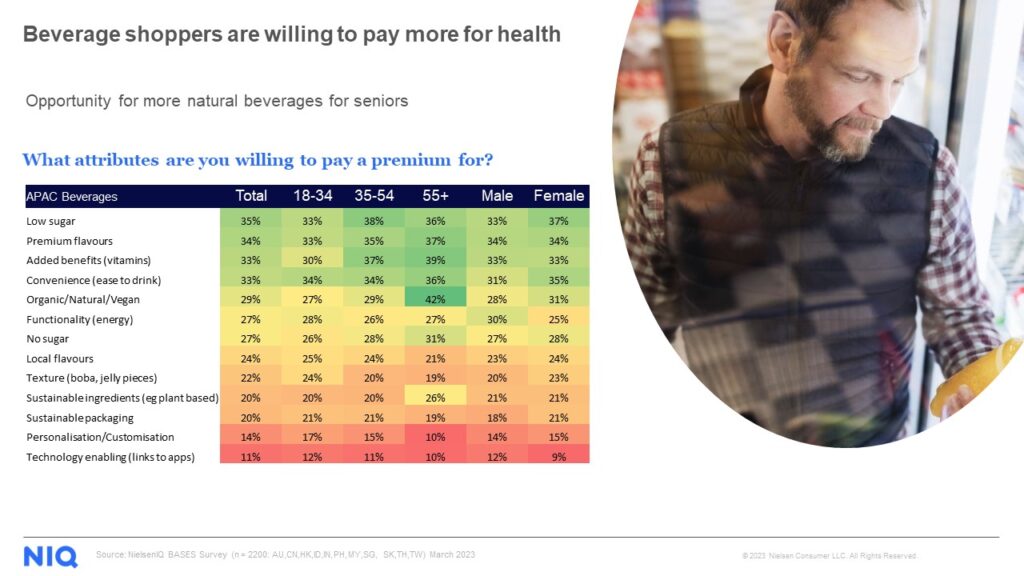
The beverage industry is responding by developing new and innovative products to target an increasing number of health-conscious consumers.
“Not only are manufacturers reducing unhealthy ingredients, but we are also starting to see manufacturers adding in healthy ingredients (vitamins) in healthy categories such as water and milk to unhealthy categories such as energy drink, tea, and even soft drinks.”
“In 2022, we have seen growth of 3% in beverage across different markets in APAC (in line with total FMCG industry) where the trends are moving towards health and wellness. Not only are manufacturers reducing unhealthy ingredients, but we are also starting to see manufacturers adding in healthy ingredients (vitamins) in healthy categories such as water and milk to unhealthy categories such as energy drink, tea, and even soft drinks. Manufacturers don’t just stop there, they are also starting to find different ways to grow their businesses, from the usual launch of new products to more unique ways where they changed the format or formula to shift the drinking occasions of consumers to collaborating with other brands to expand into new categories,” said Chonajuk Kasemsuwan, Director, Customer Success, NIQ.
Reducing additives in beverages
Beverage manufacturers are increasingly using non-sugar sweeteners or sugar substitutes, which are chemicals and plant extracts used to sweeten beverages. Common sugar substitutes include cyclamates, aspartame, sucralose, stevia and stevia derivatives. Often marketed as a low- or no-calorie alternative to sugar, sugar substitutes are largely seen as a way to aid weight loss or maintain a healthy weight.
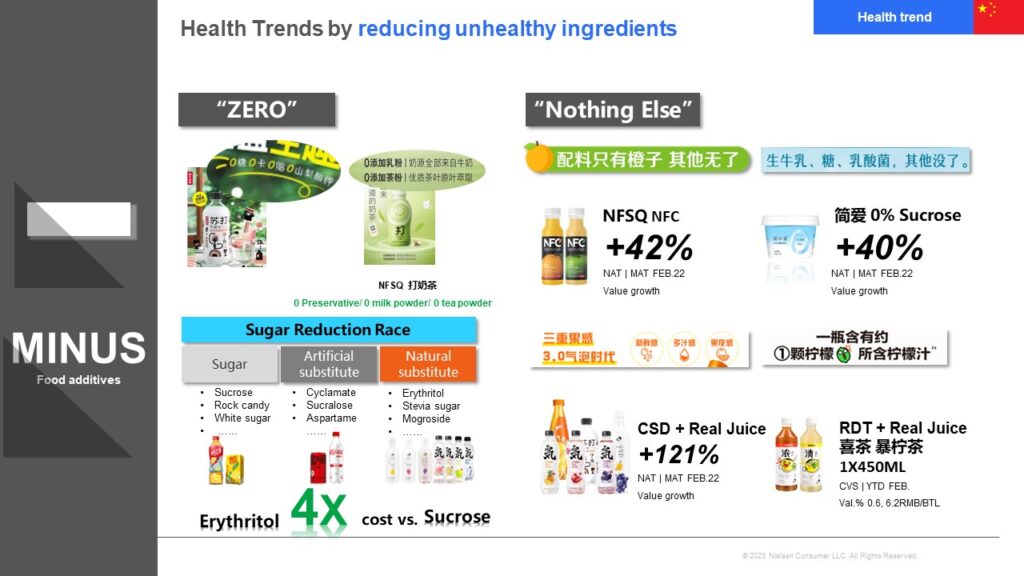
Functional drinks
Beverage manufacturers are introducing functional drinks to target consumers looking for ways to improve their health and well-being. Functional drinks are beverages that contain ingredients that are purported to have health benefits beyond basic hydration. These ingredients can include probiotics, vitamins, minerals, antioxidants. One functional beverage trend to watch is beauty beverages with functional ingredients such as collagen and antioxidants.
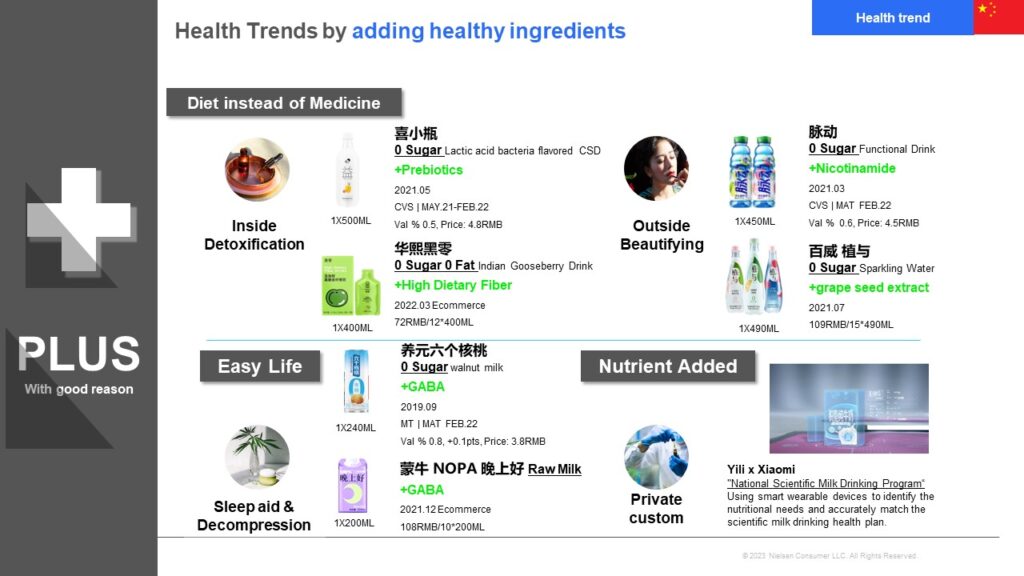
Fortified drinks
Fortified drinks are beverages that have had nutrients added to them that are not naturally present in the drink. These nutrients can include vitamins, trace minerals, and other substances. Fortified drinks are often used to improve the nutritional content of a beverage or to provide additional nutrients that may be lacking in the diet.
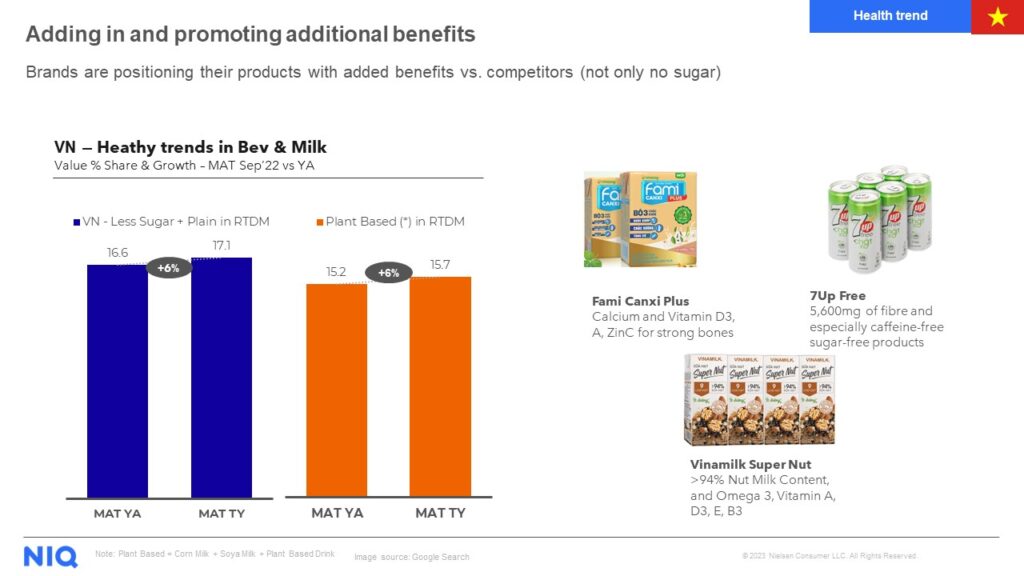
In Vietnam, beverage manufacturers are positioning their products with added benefits, such as fortifying their products with calcium, Omega 3 and vitamins.
Plant-based milk
As people seek healthier, more sustainable options, plant-based milk alternatives have emerged as compelling alternatives to traditional dairy. Alternative milk beverages are often perceived as healthier choices. They are typically low in cholesterol and saturated fats while being rich in essential nutrients like vitamins, minerals, and antioxidants. This health-conscious approach has fuelled the demand for almond milk, soy milk and oat milk.
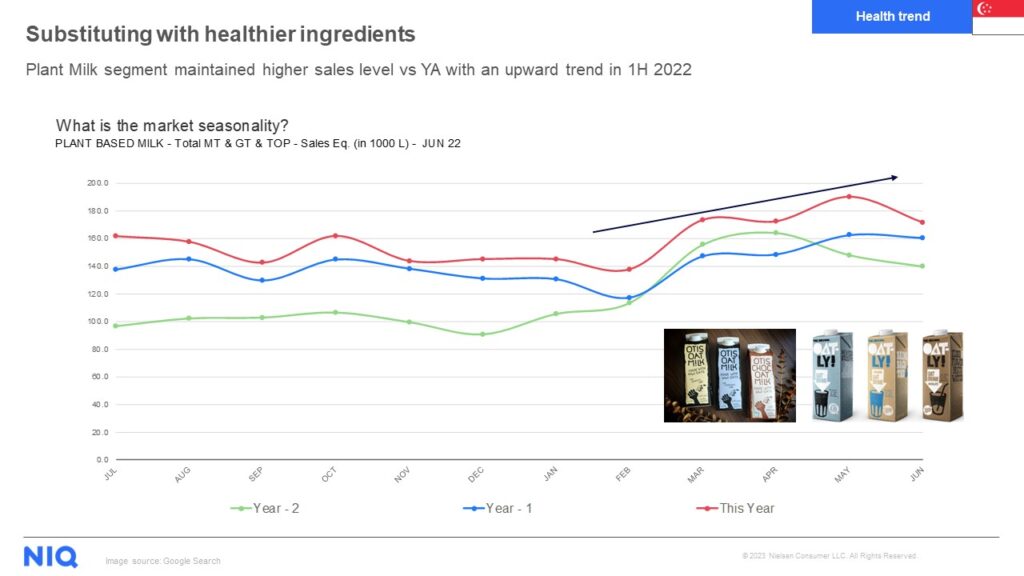
Sales of plant-based milk has seen an upward trend in Singapore.
Communicating health benefits to consumers
As consumers become more concerned with health and wellness, a huge opportunity for brands to position food around health and nutritional claims emerges. Yet consumer skepticism is also rising, with some consumers believing brands often make misleading claims. Transparency is critical when introducing products with health claims. Brands should avoid exaggerated claims that cannot be backed up with credible evidence. Compliance with food laws will allow manufacturers to have safe products on the market, while a reliable marketing campaign which uses simple and comprehensible messaging will build trust and loyalty with consumers.
Do you have innovative beverage products to showcase?
FHA – Food and Beverage returns next year on 23-26 April 2024 at Singapore Expo. With a line-up of leading global suppliers, industry professionals can anticipate the most extensive showcase of trending F&B and hospitality products and solutions, cutting-edge technologies for food & drinks manufacturing, and more at the mega event. Contact us to get involved.


